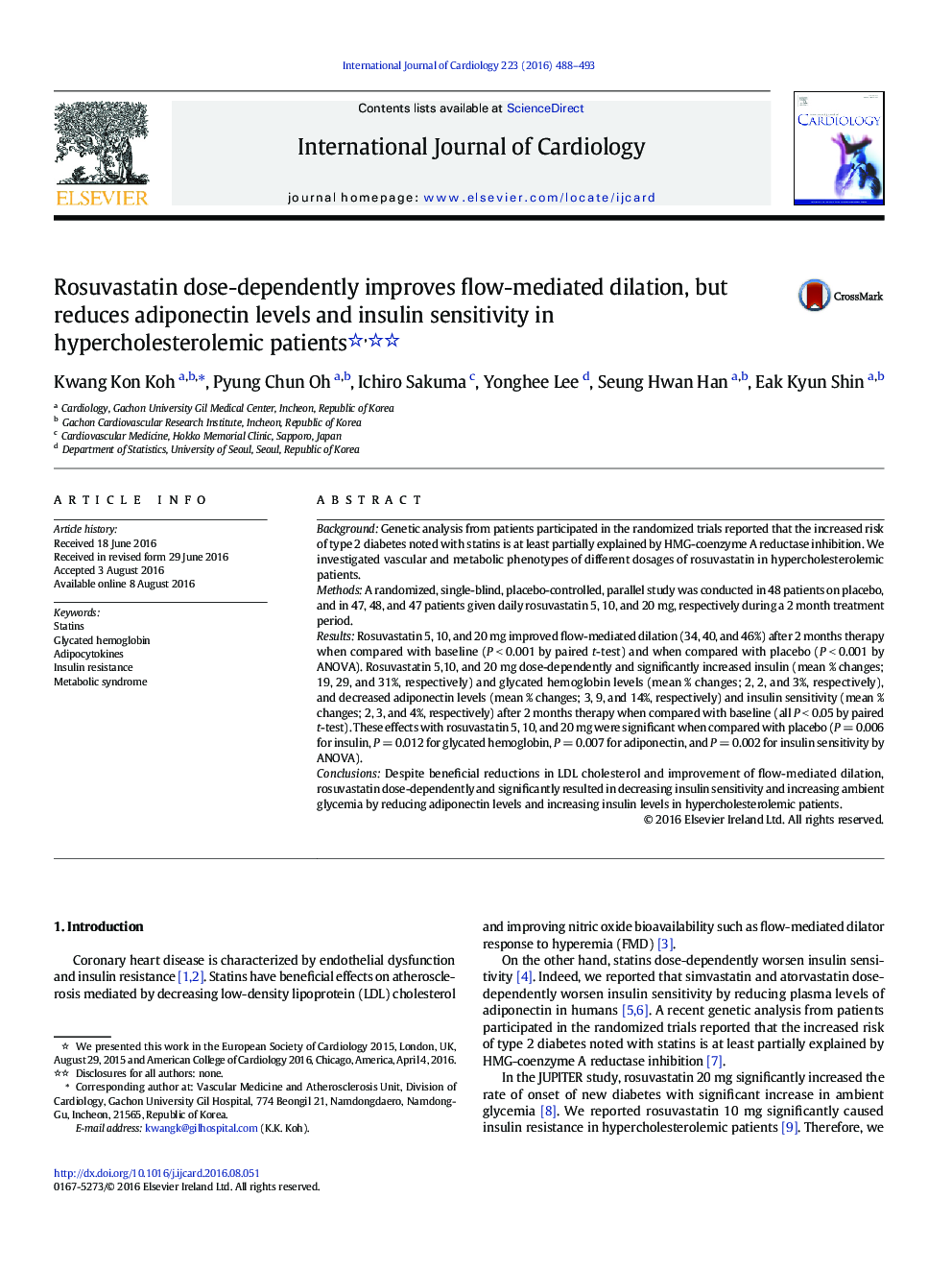| کد مقاله | کد نشریه | سال انتشار | مقاله انگلیسی | نسخه تمام متن |
|---|---|---|---|---|
| 5963174 | 1576125 | 2016 | 6 صفحه PDF | دانلود رایگان |

- We first investigated vascular and metabolic phenotypes of different dosages of rosuvastatin in hypercholesterolemic patients.
- Rosuvastatin dose-dependently and significantly reduced LDL cholesterol and improved flow-mediated dilation.
- Rosuvastatin dose-dependently and significantly decreased adiponectin levels and increased insulin levels.
- Rosuvastatin dose-dependently and significantly decreased insulin sensitivity and increased ambient glycemia.
BackgroundGenetic analysis from patients participated in the randomized trials reported that the increased risk of type 2 diabetes noted with statins is at least partially explained by HMG-coenzyme A reductase inhibition. We investigated vascular and metabolic phenotypes of different dosages of rosuvastatin in hypercholesterolemic patients.MethodsA randomized, single-blind, placebo-controlled, parallel study was conducted in 48 patients on placebo, and in 47, 48, and 47 patients given daily rosuvastatin 5, 10, and 20Â mg, respectively during a 2Â month treatment period.ResultsRosuvastatin 5, 10, and 20Â mg improved flow-mediated dilation (34, 40, and 46%) after 2Â months therapy when compared with baseline (PÂ <Â 0.001 by paired t-test) and when compared with placebo (PÂ <Â 0.001 by ANOVA). Rosuvastatin 5,10, and 20Â mg dose-dependently and significantly increased insulin (mean % changes; 19, 29, and 31%, respectively) and glycated hemoglobin levels (mean % changes; 2, 2, and 3%, respectively), and decreased adiponectin levels (mean % changes; 3, 9, and 14%, respectively) and insulin sensitivity (mean % changes; 2, 3, and 4%, respectively) after 2Â months therapy when compared with baseline (all PÂ <Â 0.05 by paired t-test). These effects with rosuvastatin 5, 10, and 20Â mg were significant when compared with placebo (PÂ =Â 0.006 for insulin, PÂ =Â 0.012 for glycated hemoglobin, PÂ =Â 0.007 for adiponectin, and PÂ =Â 0.002 for insulin sensitivity by ANOVA).ConclusionsDespite beneficial reductions in LDL cholesterol and improvement of flow-mediated dilation, rosuvastatin dose-dependently and significantly resulted in decreasing insulin sensitivity and increasing ambient glycemia by reducing adiponectin levels and increasing insulin levels in hypercholesterolemic patients.
Journal: International Journal of Cardiology - Volume 223, 15 November 2016, Pages 488-493